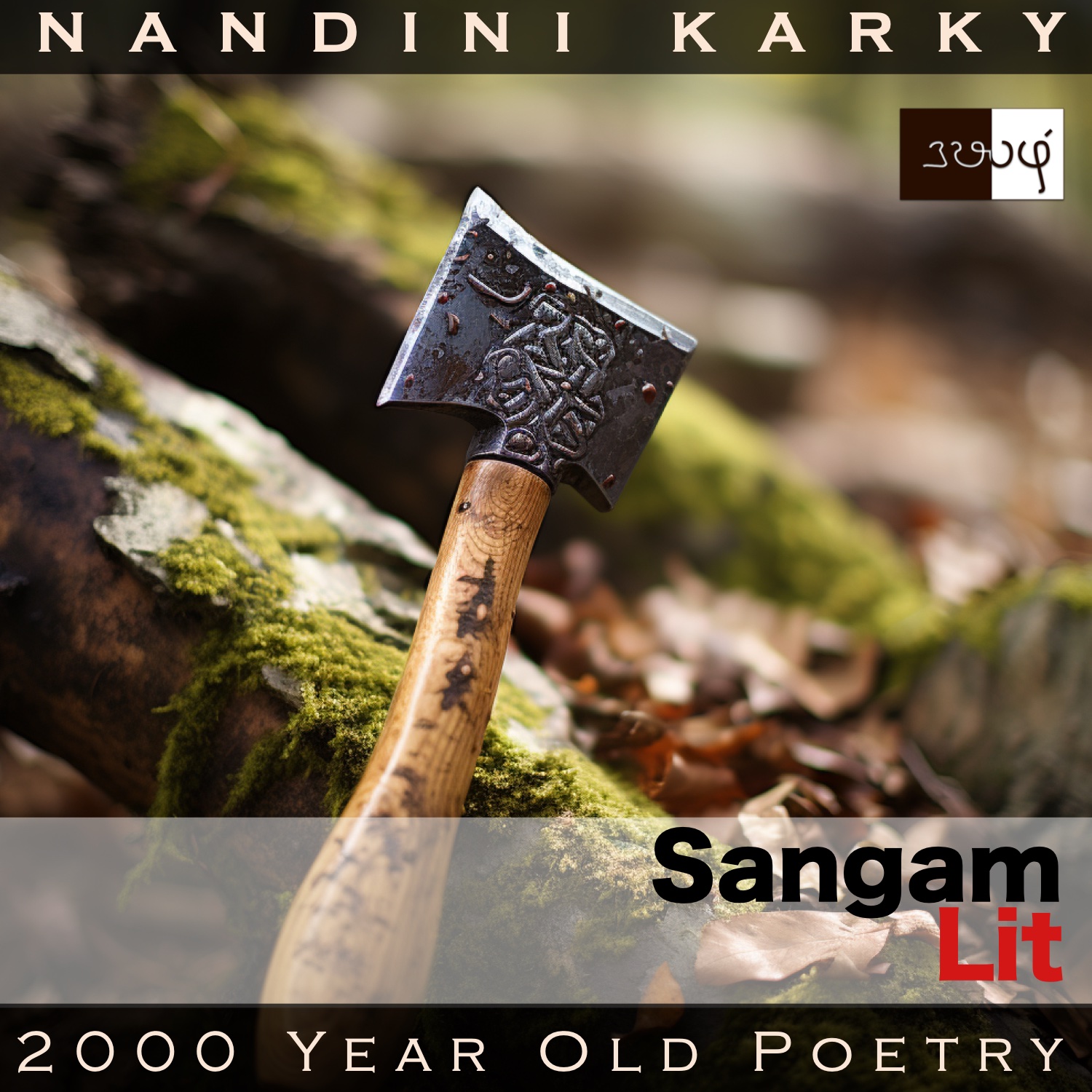Podcast: Play in new window | Download
Subscribe: Apple Podcasts | Spotify | Amazon Music | Android | iHeartRadio | Email | TuneIn | RSS | More
In this episode, we perceive the respect earned by a fallen soldier, as depicted in Sangam Literary work, Puranaanooru 270, penned by the poet Kazhathalaiyaar. Set in the category of ‘Karanthai Thinai’ or ‘Cattle Recapturing’, the verse expresses the emotion of helplessness in conveying a grievous news.

பல் மீன் இமைக்கும் மாக விசும்பின்
இரங்கு முரசின், இனம்சால் யானை,
நிலம் தவ உருட்டிய நேமியோரும்
சமங்கண் கூடித் தாம் வேட்பவ்வே
நறு விரை துறந்த நாறா நரைத் தலைச்
சிறுவர் தாயே! பேரில் பெண்டே!
நோகோ யானே; நோக்குமதி நீயே;
மறப் படை நுவலும் அரிக் குரல் தண்ணுமை
இன் இசை கேட்ட துன் அரு மறவர்
வென்றி தரு வேட்கையர், மன்றம் கொண்மார்,
பேர் அமர் உழந்த வெருவரு பறந்தலை,
விழு நவி பாய்ந்த மரத்தின்,
வாள் மிசைக் கிடந்த ஆண்மையோன் திறத்தே.
Although there is no explicit mention of cattle, as it appears in the series of songs on this theme, scholars have attributed a background of recapturing cattle to this verse. The poet’s words can be translated as follows:
“Like thundering clouds in the vast sky filled with twinkling stars, resound their drums. With herds of elephants, those great kings, who have rolled their wheels of power on this land for generations many come together on the battlefield and mourn with love, O young man’s mother, having greying hair that lacks fragrance owing to your giving up the use of perfumed mixtures! O mother, born in a noble lineage! I suffer so! Why don’t you see for yourself? Hearing the sweet music of the high-pitched ‘thannummai’ drum which beckons warriors to come to battle, that brave man, desiring to gain victory, wanting to win territory, warred in the widespread battlefield. Akin to a tree brought down by an axe, he lies fallen there upon a sword. See for yourself, the manly strength of this great warrior!”
Let’s delve into the details here. The poet starts by connecting the thunder in the skies to the sound of war drums. Mentioning these war drums as the first in a list, the poet adds herds of elephants and rule on this land for generations many as the other attributes of the great kings, possibly referring to the Chera, Chozha and Pandya kings. These great kings, forgetting their differences, were all weeping together on the battlefield mourning the loss of a person, the poet explains, and reveals that he is saying these words to the mother of that person, a lady he describes as having greying hair lacking fragrance because of not using perfumed pastes like younger women. He also mentions that this lady is from a noble lineage. He talks about his own feeling of suffering and points to that great warrior, this lady’s son, lying on the field, at the end of a battle, beckoned by the sound of drums. In a picturesque simile, the poet equates the image of the man lying fallen on the battlefield upon a sword to that of a huge tree felled by an axe, and asks the mother to gaze upon the greatness of her son.
A poignant moment of immense pain seeing the grief of a mother at the loss of her son. The poet extols the glories of this man to his mother by saying even the greatest kings mourn his loss for such was his valour. Indirectly, the verse ends up being a subtle lesson on supporting another in a moment of grief and being there for the bereaved!




Share your thoughts...